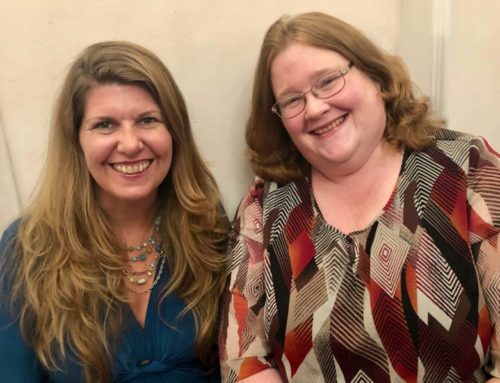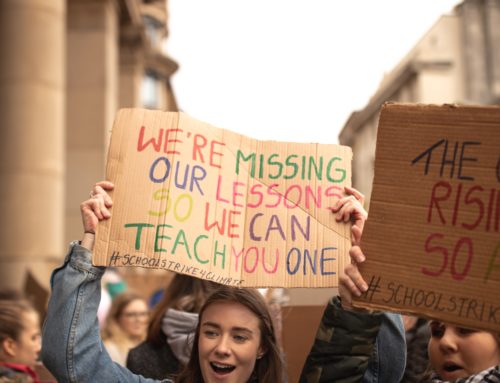 Richard was perplexed and annoyed. For the past few months, his colleague Julie had been moody, unhelpful and would barely look him in the eye. In meetings with other people present, she was as animated as she had always been, but if he was talking she would resume her sulky look. Richard had spent quite some time trying to work out what could be wrong, but Julie seemed to disappear as soon as there might be an opportunity for him to talk to her about it. He was concerned about her and could see that it was something to do with him but he didn’t really know what.
Richard was perplexed and annoyed. For the past few months, his colleague Julie had been moody, unhelpful and would barely look him in the eye. In meetings with other people present, she was as animated as she had always been, but if he was talking she would resume her sulky look. Richard had spent quite some time trying to work out what could be wrong, but Julie seemed to disappear as soon as there might be an opportunity for him to talk to her about it. He was concerned about her and could see that it was something to do with him but he didn’t really know what.
Talking about his situation at an in-house War to Peace workshop at work, Richard stopped and sighed. He admitted that, whilst he wanted to find out what was going on with Julie and fix it, he could really do without the hassle and stress of it all right now. He told us that his wife had been diagnosed with cancer at the beginning of the year and had gradually found looking after their two small children more and more difficult. He would come home from work and immediately begin caring for his family. At night, he was having problems sleeping as his wife would often have violent coughing fits and he would lie awake worrying about their future. When he went into work, he could really do without the added complication of a sulky colleague to deal with. Richard clenched his jaw and muttered, “I’ve just about had it up to here with her petty teenage behaviour. I’ve tried to understand and she just avoids me. Sometimes I just want to give her a slap!”
Another participant in the workshop cleared her throat and put up her hand to speak. She had struggled with whether to share this, but she thought that she might be able to shed some light on the problem. She had heard Julie talking to another colleague about her worries that Richard didn’t like her and didn’t think she was pulling her weight in the department. She had complained that Richard had been withdrawn since the New Year and seemed distant and irritated, and she was convinced it was because of her work and it would only be a matter of weeks before he got her sacked.
 Suddenly it was clear that Richard’s situation was a great example of the Spiral of Disempowerment™, which reveals to us our (often unconscious) role in the conflict. It shows how our perceptions, beliefs and emotional state create in us a way of being that invites from the other person the very behaviour we say we want to change. So Richard’s worried, tired demeanour as a result of too many broken nights had been misread by Julie as a sign that he was irritated by her and dismissive of her work. She had felt rejected and defensive, which had meant that she behaved in a disconnected, sulky way with Richard. Her behaviour was then perceived by him to be obstructive and unhelpful, and he felt first irritated and then dismissive – and so the cycle went on.
Suddenly it was clear that Richard’s situation was a great example of the Spiral of Disempowerment™, which reveals to us our (often unconscious) role in the conflict. It shows how our perceptions, beliefs and emotional state create in us a way of being that invites from the other person the very behaviour we say we want to change. So Richard’s worried, tired demeanour as a result of too many broken nights had been misread by Julie as a sign that he was irritated by her and dismissive of her work. She had felt rejected and defensive, which had meant that she behaved in a disconnected, sulky way with Richard. Her behaviour was then perceived by him to be obstructive and unhelpful, and he felt first irritated and then dismissive – and so the cycle went on.
Just being able to see the situation from this viewpoint made things immediately clearer for Richard and he felt as though a huge weight had been lifted from him. He saw a different story from the one he had held previously, and he understood how Julie could have misread his behaviour at work. He vowed to talk to her about what he was going through at home so that she could understand the situation too.
A fortnight later, he emailed to tell us that the work environment was much easier now, that he had chatted with Julie and she had been very supportive and was feeling relieved too, now that she knew her job wasn’t in jeopardy. They had both been amazed at the power of their own assumptions about the other to affect their feelings and behaviour. Richard now keeps a printout of the Spiral of Disempowerment™ on the noticeboard by his desk to remind him to check how much he himself is invested in any conflicts that arise.
Over to you
If you are in conflict with someone at home or at work, download the Spiral of Disempowerment™ tool and work through it. It’s a great way of seeing the part you play in the situation.
Do you know someone who could benefit from War to Peace?
If you know someone who would benefit from recognising some alternative reasons for other people’s reactions, our next open-access War to Peace workshop is on 17 October and we have just FIVE spaces left. To book your place, click here.
P.S. Pass it on!
Found this useful? Then please share this article using the icons below and do leave us a comment.
How much are you investing in your conflicts?
Please leave your name and email address at the top or bottom of this page to receive more articles like this.
©Halcyon Global 2014
photo credit: KristopherM via photopin cc






Leave A Comment